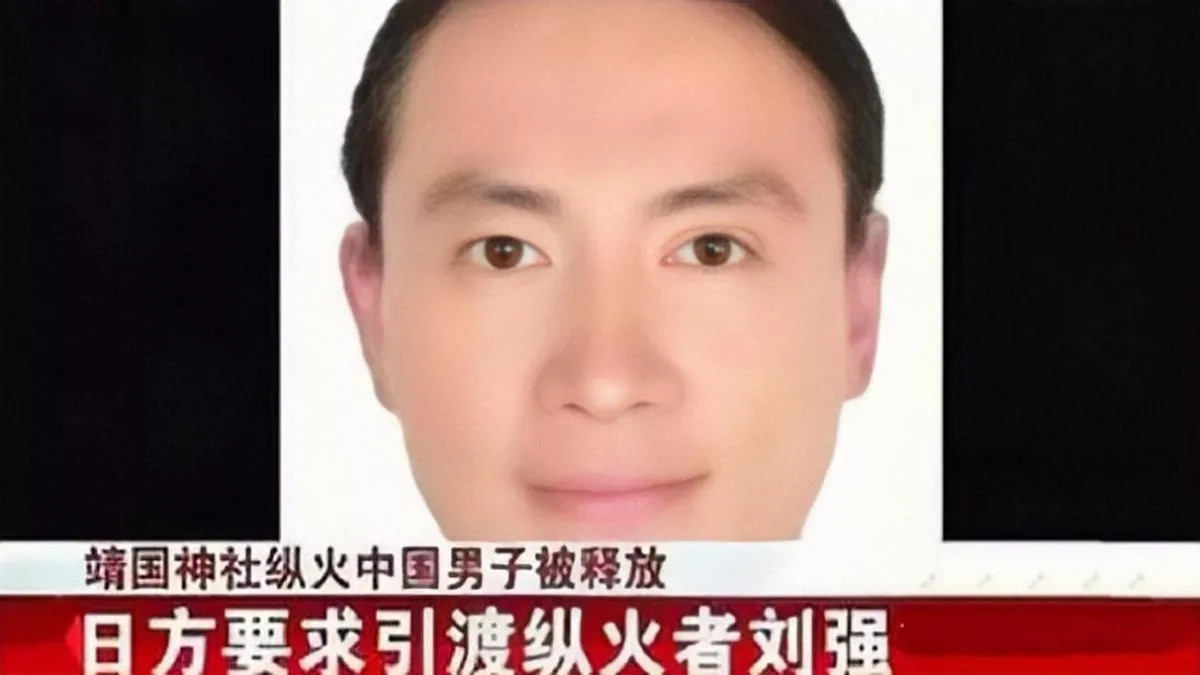In 2011, Liu Qiang, a Chinese man, set fire to the Yasukuni Shrine dedicated to war criminals in Japan. After returning to China, his wife divorced him, and the unit also fired him, how is he now?
On a late autumn night, a sudden burst of fire burns violently in the night sky of Tokyo, bringing a quiet piece of history to the forefront once again. This flame not only illuminated every corner of the Yasukuni Shrine, but also pushed a Chinese man named Liu Qiang to the center of the world. At this moment, Liu Qiang's life trajectory was completely changed because of a flame, but behind this, what complex emotions and firm beliefs are intertwined.
Liu Qiang, a man born into a military family, seems to have been destined for extraordinary life from the day he was born. His grandfather, Liu Biesheng, was a commander of the New Fourth Army who died heroically in the 1945 Anti-Japanese War, and his grandmother, Yang Ying, was a South Korean woman who had been reduced to a comfort woman. Growing up in such a family full of historical scars and national feelings, Liu Qiang has established a strong sense of family and country and a deep hatred for Japanese militarism since he was a child.
Liu Qiang's growth path is full of deep reflection on family history and in-depth exploration of national history. As he grew older, this emotion did not fade over time, but grew stronger as he learned more about history. He became a psychotherapist with a deep understanding and empathy for humanity in his professional spirit of healing and helping others. However, it was this deep understanding of human nature that made him even more reluctant to let go of the suffering in that dark history.
When the earthquake struck Japan in 2011, all eyes were on relief and humanitarian aid. As a psychotherapist, Liu Qiang instinctively responded to this humanitarian call and went to Japan to participate in the earthquake relief. However, what he didn't expect was that this trip to Japan would eventually become a turning point that changed his life.
During his time in Japan, Liu Qiang witnessed scenes that were difficult for him to accept: the aftermath of militarism was still spreading in some places, some Japanese were not only not ashamed of the war of aggression against China, but were proud of it, and in Japanese schools, he saw the ostracism of Chinese students. What made him even more sad was that when the South Korean president visited Japan and strongly demanded a solution to the comfort women issue, the Japanese prime minister refused. This series of events seemed to touch the deepest pain and anger in Liu Qiang's heart, and he decided that he must take action to show the world in an extreme way the indomitable and defiant Chinese.
On the evening of December 26, 2011, Liu Qiang stood in front of the Yasukuni Shrine, his heart full of mixed emotions. As the New Fourth Army anthem echoed in the night sky, he lit torches and illuminated the shrines dedicated to war criminals. The light of the fire shone on his determined face, and at that moment, he seemed to see the justice and dignity that his ancestors had fought for.
After the incident, Liu Qiang did not choose to run away, he went to South Korea and continued to express his strong protest against the attitude of the Japanese government with flames. However, this time, he was arrested by the South Korean police. The Japanese side strongly demanded extradition, but the attitude of the South Korean government and people surprisingly refused. In South Korea, Liu Qiang unexpectedly received the title of "hero", and despite his imprisonment, many people expressed understanding and support for his actions.
When Liu Qiang returned to China after his release in 2013, his life entered a new phase. His career was forced to end because of his actions, and his marriage came to an end. Faced with pressure and misunderstanding from the outside world, Liu Qiang fell into depression. But in the darkest moments, he did not choose to give up, but gradually came out of the shadow of depression through therapy and self-reflection.
Today, although Liu Qiang's life has calmed down, he is still committed to researching and publicizing the history of the Anti-Japanese War, hoping that through his own efforts, more people can understand that period of bloody and tearful history. Although his actions have caused controversy, his patriotic feelings and courageous spirit have also inspired some people to rethink and reflect on history.
Liu Qiang's story is complex and multifaceted, just like history itself. His actions may be seen by some as excessive, but his motivations and emotions are deeply rooted in a deep sense of his country's history. In this story, Liu Qiang is not only an actor, but also a thoughtful observer, and his life is a profound embodiment of the complex relationship between historical memory, national sentiment, and individual action.
